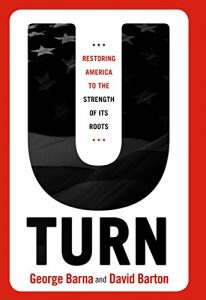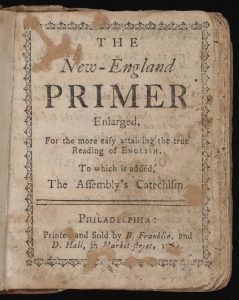Equipping Members of the Next Generation of Christians to Defend Their Faith and to Embrace a Biblical Worldview, Part 9
Our world is on fire, and man without God will never be able to control the flames. The demons of hell have been let loose. The fires of passion, greed, hate, and lust are sweeping the world.
—Billy Graham in 1965, on page 1 of his book World Aflame —
When Christians talk about the importance of developing a worldview message, they typically mean learning how to argue persuasively against the “isms” of the day. But having a Christian worldview is not just about answering intellectual questions. It also means following biblical principles in the personal and practical spheres of life. Christians can be infected by secular worldviews not only in their beliefs but also in their practices
—Nancy Pearcey—
Most people catch their presuppositions from their family and surrounding society, the way that a child catches the measles. But people with understanding realize that their presuppositions should be chosen after a careful consideration of which worldview is true.
—Francis Schaeffer—
Key point: A worldview, which is made up of presuppositions about God, life, death, morality, and eternity, is critical. Why? Because if the presuppositions of a worldview are wrong, it puts the individual and the society espousing that worldview at odds with reality. And if the presuppositions are wrong, the conclusions will be wrong as well.
You can find links to all the articles in this series here.
We move now in our series on apologetics and the Christian worldview to begin to consider some worldview basics. As you soon will see, worldviews have very practical implications for both individuals and societies. On an individual level, a worldview is a set of presuppositions that shape how a person sees and interprets life and the world around him. These presuppositions relate to many paramount issues, including God, life, death, morality, ethics, and eternity. Worldviews often are not consciously determined. Societies have presuppositions, and consequently worldviews, as well. For both individuals and cultures, worldviews are critically important. They can—and do—determine destinies!
Worldviews are critically important. They can—and do—determine destinies!
In a previous article, we looked briefly at several events that highlight America’s Christian heritage from the time of of its founding and during its history, all the way until the early part of the last half of the 20th century. These events included the first prayer in Congress, Benjamin Franklin’s call for regular prayers to be offered at the Constitutional Convention in 1787, and President Franklin Roosevelt’s prayer for Allied forces, which was broadcast on radio on D-Day, June 6, 1944.
Then, later, we considered in a 5-part series several Supreme Court decisions that have contributed substantially to America’s moral decline. The Supreme Court removed prayer from public schools in 1962, legalized abortion on demand in 1973, and mandated that in every state, marriage must be offered to same-sex couples in 2015. Of course, these judicial decisions were not the only factors paving the way for the unraveling we’ve seen in the last 50 to 60 years, but they do provide important markers for us as we review the cultural and moral trends in our nation.
We’ve Come a Long Way—Unfortunately
Here I want again to contrast
- where we once were as a nation to
- where we are now are with regard to America’s morality and her disposition toward God.
On the Wednesday and Thursday, March 28 and 29, 2018, on Family Talk with Dr. James Dobson, Dr. Dobson interviewed researcher and Christian leader George Barna. In part 2 of the series, the two men talked about the values that were prevalent in the culture at the time of our nation’s founding and contrasted these to the values that prevail today. Two clips from the program are especially insightful.
 The book about which Barna is speaking is U-TURN: Restoring America to the Strength of its Roots (also go here). What follows is a list of the values he named that were dominant in the culture at the time of the American colonies.
The book about which Barna is speaking is U-TURN: Restoring America to the Strength of its Roots (also go here). What follows is a list of the values he named that were dominant in the culture at the time of the American colonies.
- hard work
- civic duty
- humility
- moderation
- family
- faith
- the rule of law
- frugality
- simplicity
What are the prevailing values in our day?
- comfort
- experiences
- personal expression
- happiness
- independence
- entitlement
- control
- acceptance
- freedom

With each of these lists, Barna indicates he’s about to list ten values and then names just nine, but this is a mistake we readily can forgive. His point is well made. We have come a long way from where we once were, and we’ve not traveled in a healthy direction. Actually, we’ve moved to a place that threatens our ability to maintain a free society. Why? Because when the values in the first list dominated, people’s assumptions were correct and aligning with reality. Individuals were policing themselves and respecting the rights and liberties of others. Generally speaking, they were not willing to infringe on the rights of others to attain what they wanted. Rather, they knew they were expected to work hard and that their efforts would be rewarded. In fact, they took pride in what they could accomplish with creativity, ingenuity, and productivity.
Contrast those values to the items on the second list. The ideals (if you can call them that) that make up the second list effectively encourage people to make demands of others—especially through
- government policy, or, if not through policy, through
- lawlessness, violence, and/or disruption of the normal course of life.
Both of these avenues restrict the rights of others, either through taxation and redistribution of wealth or societal upheaval, including a lack of safety in the streets. This is the kind of fruit that false assumptions produce. But what is the false assumption? someone might ask. For starters, the idea that they’re entitled to have their demands met is false. The items on Barna’s second list are consistent with this sort of mentality.
We’re Not Talking About Returning to the “Dark Ages”
At this point, we need to offer a word of clarification. In citing the benefits that grow out of the items on the first list, we are not making a case for returning to every aspect of Colonial life or to every aspect of any era in America’s past. Many technological advances have improved life in the United States, and various social movements, such as the abolitionist movement in the 1800s and the civil rights movement in the mid-twentieth century, also have made life better for everyone. These should be celebrated.
At the same time, it is clear that our culture has abandoned some very essential standards and ideals. These must be recovered if we would remain free and prosperous. When virtue, integrity, and other biblical values are jettisoned, society unravels and pays a very high price. Returning to our national roots in this regard would mean making great strides forward.
Worldviews Make the Difference
We cannot sufficiently understand the shift in values that has occurred without also understanding the differences between competing worldviews. As George Barna indicated, the public consensus in the Colonial era has been replaced in our day with one stressing the importance of self, independence, and following one’s own desires. Children once were told of their accountability to God, but no more! This is because each of these two worldviews answers the question Where did I come from? differently—and the implications are enormous. A parable we cited in an earlier article illustrates this well.
A Jewish rabbi bound on a plane for Israel soon discovered he was seated next to one of the leaders of Israel’s socialist labor movement. After the plane became airborne, a student of the rabbi who was seated several rows behind him approached him and offered him his slippers. “Here are your slippers, sir,” he said, “You’ll feel more comfortable in them, since your feet swell terribly on the plane.” A short time later the same young man came forward again and offered the rabbi several sandwiches. “Your wife fixed these for your lunch, sir. We know you’ll like them much better than the food the airline will offer.”
These were not isolated incidents, but a pattern; the student returned on numerous occasions to check on the rabbi, to offer him something to make his flight more pleasant, or to serve him in some other way. All of this made quite an impression on the socialist leader, who finally turned to his seatmate and said, “Wow! I’m so impressed with your son! I have four grown sons, and never in all my life have they offered to serve me as your son has waited on you. Why is he so attentive to you?”
“I have to be honest with you,” said the rabbi. “This young man is not my son but my student. His service, as good as it is, is nothing compared to the assistance my own son would give me if he were here.
“The reason the members of the next generation, including members of our own families, treat us as they do is quite simple. All of them are living according to the ideas and principles we’ve taught them. You decided some time ago to tell them that you—and they—descended from apes, and this is what you taught them. They know intuitively this means that you are one generation closer to being a monkey than they are, so it’s only natural that they would expect you to serve them. I, on the other hand, have taught my children and students that we have been created by God Himself. They understand this puts me one generation closer to the Source of Ultimate Truth, and they treat me in accord with this understanding. We reap what we sow.”1
The New England Primer—A Handbook Promoting the Christian Worldview
Indeed, we do reap what we sow. What were we sowing during the early days of this country? We could answer this question by citing many factors, but here we’ll cite just one—the New England Primer. An article at britannica.com calls The New England Primer “the principle textbook for millions of colonists and early Americans.”
The New-England Primer [was] the principal textbook for millions of colonists and early Americans.
—Samuel James Smith at britannica.com—
The article continues,
First compiled and published about 1688 by Benjamin Harris, a British journalist who emigrated to Boston, the primer remained in use for more than 150 years.
Although often called “the little Bible of New England,” The New-England Primer gained popularity not only in New England but also throughout colonial America and parts of Great Britain; an estimated six to eight million copies had been sold by 1830. Less than 100 pages in length, this early textbook proved significant in both reflecting the norms of Puritan culture and propagating those norms into early American thought. In The New-England Primer, Harris provided a tool of reform that promoted literacy, proliferated compulsory education, and solidified a Calvinist ethic in colonial America.
The textual content of the 1777 edition of the book is available here, and several editions of it are available for download here.
I encourage you to examine the entire book, including the lessons from the 1777 edition available here.
What did schoolchildren learn as they studied this small volume? Below is a one-minute video summarizing the content and impact of the primer.
Education Today
Fast forward to the latter half of the 20th century. In an article published in Crisis magazine in 1987, Virgil C. Blum wrote,
One of the most hotly debated issues of the day is whether the religion of the public schools is Secularism. When the Supreme Court forbade the teaching of the traditional religions in public schools, did it, in doing so, establish religious neutrality? Or did it effectively establish a new religion called Secularism?
In compliance with the Court’s decisions, most public schools have banned the teaching of religion. In doing so, they have effectively suppressed the teaching of religiously-grounded moral values.
Instead, Blum goes on to say, personal values and opinions are advocated in schools, especially as they relate to controversial issues like abortion. This isn’t merely his own assessment, either, but the conclusion of a researcher who had studied trends and practices in the schools. Blum continues, saying that instructors in public schools
are forbidden to advocate such religiously-grounded moral values as freedom, justice, equality, and democracy. Neither can they teach students the moral, social, and economic evils of drugs, alcohol, and pre-marital sex. Nor can they teach students such moral values as recognizing the dignity of man, the sanctity of life, and the importance of responsible social relations.
This is what is meant by the secularization of our public schools: the suppression not only of the teaching of religion but also of religiously-grounded moral values. Forbidding the teaching of such values is virtually the same as teaching that those values are false, or at least irrelevant to man’s affairs. But Secularists in state education have taken a big step beyond suppressing the teaching of religiously-grounded moral values. They have effectively censored from text books virtually all references to the place of religion in Western civilization and in American history.
Secularists in state education have taken a big step beyond suppressing the teaching of religiously-grounded moral values. They have effectively censored from text books virtually all references to the place of religion in Western civilization and in American history.
—Virgil C. Blum—
There is no such thing as being completely values-neutral. Also, remember that this was an article written thirty years ago. What are kids being taught today? The situation has grown even worse! Watch this CBN News report from June, 2015.
Add to this mix the impact of the Internet and social media on kids, and you can see that the prevailing worldview represented by Barna’s second list is everywhere!
Where Do We Go from Here?
As we indicated, the place where we were as a culture at America’s founding provided futile ground for true liberty, productivity, and progress. It is no surprise, therefore, that these flourished in subsequent years in our history. Sadly, today we’re at a place that works against these ideals. Take note! The foundational difference is that a biblical worldview has been replaced with one that promotes self-interest and greed.
What can Christians do to help America return to the worldview of its founding? For starters, as Christian individuals and as families and churches who believe the Bible is true, we need to be intentional about choosing presuppositions about life that are true, just as Francis Schaeffer indicated in the quote that heads this article.
Perhaps just as important, we need to understand the the Bible addresses, not just the spiritual aspects of life, but every aspect of life.
We’ll explore that theme in next week’s post.
Copyright © 2018 by B. Nathaniel Sullivan. All rights reserved.
photo credit: Colonial Williamsburg
Note:
1Rabbi Daniel Lapin, America’s Real War: An Orthodox Rabbi Insists that Judeo-Christian Values Are Vital for Our Nation’s Survival, (Sisters, OR: Multnomah Publishers, 1999), 51-52.


Be First to Comment